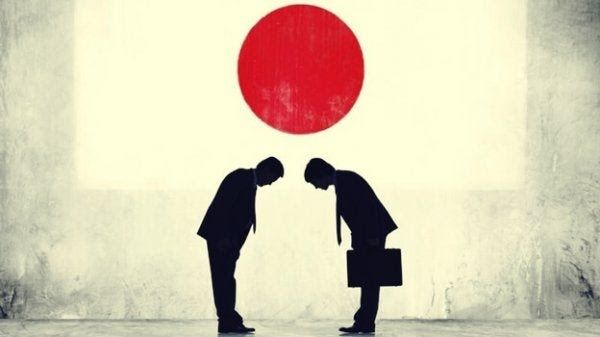The 5 🗝️ Of Japanese Psychology
Jul 22, 2019 • 25 views
The 5 keys of Japanese psychology
Books like “Social Psychology of Modern Japan” by Munesuke Mita, show us the approaches that feed Japanese culture.These are sometimes very traditional but at the same time cutting-edge and sophisticated when it comes to business and engineering.
To understand in depth the philosophy of life and the dynamics that constitute Japanese psychology, we should understand the specific keys about the Japanese. These are how they manage theiremotions, relate to each other and what strategies their psychologists use to promote mental well-being.
1. The emotional world – tatemae and honne
The Japanese are very prone to rationalizing their emotions and they tend to be rather reserved in expressing themselves.
They manage their emotional worlds based on the context they are in.Tatamaerefers to public behavior, where being reserved is paramount,and respect, balance and restraint are favored.
Honnerefers to the emotions that each person can release, work with and manage privately in their own home. This happens from a spiritual point of view.Japanese psychology tends to have its roots inBuddhismand Taoism. In this, each person finds their own channel for healing and relief.

2. Trust within groups
Japan is a society with a very strong concept of collective and social cohesion.Respect towards thefamilyis highly valued. So is respect to one’s own community, which should always seek the common good and not exclusively one’s own benefit. For example, when someone has a cold, they will go out wearing a mask to prevent spreading it to others.
The Japanese identify with the group and have a very solid and clearly defined social self. This was useful in the 2011 tsunami and earthquake which devastated a large part of Fukushima.
3. Arugama, accepting things as they are
Acceptance is a strongly rooted concept in Japanese psychology.However, acceptance is not a synonym of surrender or resignation. The Japanese know that allstrongmaterials or substances always end up breaking, cracking or splitting.Those who don’t accept and who resist, don’t flow, don’t adapt and don’t survive.
Arugama is the essence of the change which takes place following acceptance, after accepting that things are as they are, and that there is no option but to continue moving forwards.
4. Awareness
Within Japanese psychology,“Morita Therapy” is very common. It is a kind of psychological strategy based on bringing awarenesss to oneself.This is something which will ring a bell with the majority of us (it is very similar to the rational emotive therapy of Albert Ellis). However, Eastern culture has been practicing it for years. One of the main characteristics of this therapy is being aware of one’s one inner experiences. Understanding suffering, frustration, fear, anxiety, etc.
Once a person has made contact with their personal reality, the therapist recommends 4 strategies for promoting recovery: total rest, meditation, correct diet and gradual preparation for daily life.

5. Reflecting on our own stories and relating them to nature
This kind of approach is interesting.Japanese psychology tends to transmit the need to practice introspection.People see their own life stories, what has happened, all they have suffered, what they have discovered and what they have enjoyed. They see their personal stories as events that also happen in nature.
We all grow and mature, we all go through phases that leave deep marks on us, similar to those found ontreetrunks.Each of us can flower in the most adverse of situations.Wenourish our roots to become stronger beings.
Life is a constant flow. It is a river that doesn’t stop, like the wind that moves the leaves and the surfaces of the seas… Far from feeling like victims of fate, we can be like nature itself. Always keen to renew itself, to continue germinating…
Japanese psychology is more familiar to us than we think.Many of our approaches have these principles of self-improvement which are so inspiring for our day-to-day lives…Apply them if you like, they could be very helpful for you too.
